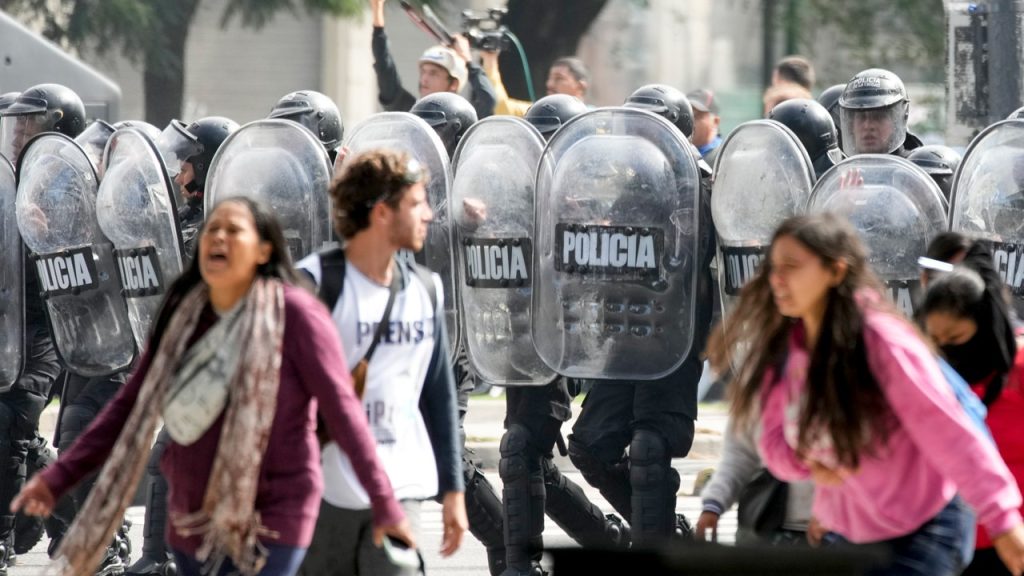Anti-government protesters in Argentina clashed with authorities over President Milei’s spending cuts, leading to arrests and a violent confrontation in the capital city of Buenos Aires. Riot police used water cannons to disperse the demonstrators who were blocking major streets in defiance of new laws banning roadblocks. The protests come amid widespread discontent with Milei’s austerity measures, which have led to strikes, protests, and soaring levels of inflation across the country.
Strikes and protests have been ongoing in Argentina as people struggle to cope with the economic challenges brought on by Milei’s policies. Bus drivers are planning to strike in response to the government’s crackdown on protests. President Milei has taken a tough stance on law and order, passing new measures to empower security forces to arrest and disperse protesters who block roads. Critics, including UN human rights experts, have condemned these actions as violations of civil liberties.
The government’s efforts to stabilize the economy through drastic spending cuts have had a negative impact on social benefits, including food programs that many Argentines rely on. With annual inflation exceeding 276% and poverty levels rising, people have turned to soup kitchens run by left-wing parties and social groups for support. However, Milei’s austerity measures have also affected these food pantries, leading to halted food deliveries and reduced funding.
Protesters gathered at the Ministry of Human Capital in Buenos Aires to voice their discontent with the government’s policies. President Milei’s administration has faced criticism for its harsh approach to dealing with protesters, with security forces cracking down on demonstrations and arresting participants. The government’s actions have been praised by some, who view them as necessary for restoring order in the capital city.
The clashes between anti-government protesters and authorities highlight the growing tensions in Argentina over President Milei’s controversial policies. The protests reflect the deepening economic crisis in the country, with many Argentines struggling to make ends meet in the face of rising inflation and austerity measures. The government’s crackdown on protests has drawn criticism from human rights experts, who have raised concerns about violations of civil liberties and excessive use of force by security forces.
As the situation in Argentina continues to deteriorate, with ongoing protests, strikes, and economic challenges, the government faces mounting pressure to address the grievances of its citizens. President Milei’s administration must find a balance between stabilizing the economy and meeting the needs of the people, particularly those most vulnerable to the effects of austerity measures. The confrontations between protesters and authorities serve as a stark reminder of the social and political unrest gripping the country, as people demand accountability and action from their government.


